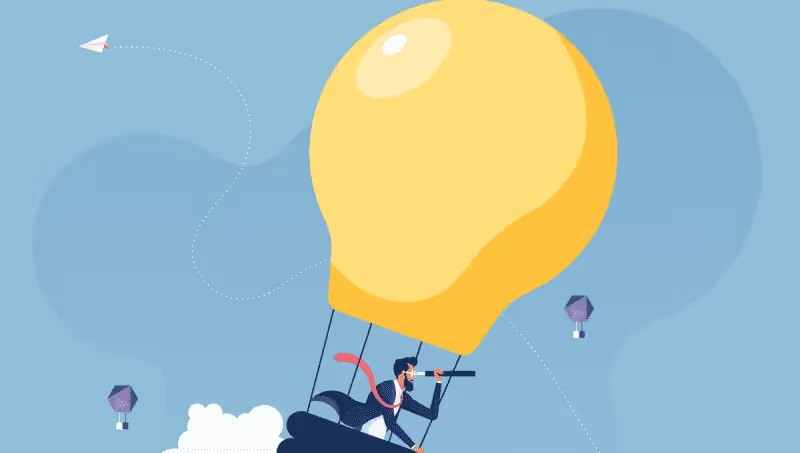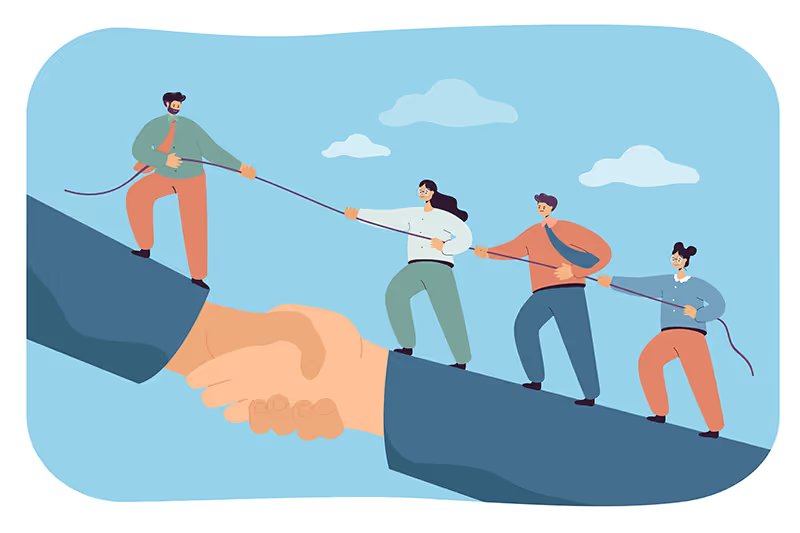Insights are those deeply satisfying moments when a learner goes from, “I can’t figure this out” to “Aha! I’ve got it!” These moments help organizations innovate and stay agile in a fast-paced, highly competitive business landscape.
They also help employees learn quickly and solve increasingly complex problems. Research shows that when employees have insights — especially strong ones — their moods improve, they’re more motivated, have better recall, and even experience aftershocks of amazement that set the stage for more insights. So it’s no surprise that leaders want to know how to create conditions for this.
The insight problem-solving process has long been studied in neuroscience. Insights are the result of two important processes: chunk decomposition and constraint relaxation.
Chunk decomposition, a conscious process, begins when our brains first encounter problems and attempt to understand them. Sometimes, this process alone is enough to culminate in insight. But if the problem is too big or complicated and can’t be solved by conscious thought, the brain then enters an impasse stage. During an unconscious process called constraint relaxation, it keeps working to solve the problem by breaking down the chunks and trying to reformulate the problem. So even when our conscious focus turns to other things, we keep “working on” more difficult problems unconsciously.
In a classic piece on how to generate insights, NLI co-founder David Rock refers to a body of research exploring the insight phenomena. The research points to key factors in any organization’s control, such as promoting quiet time, that allow the mind space to wander and lets people take breaks from thinking.
Another important element of insight formation involves the quality of the learning environment. Social learning is especially impactful because it engages participants in learning experiences that can be shared. By connecting learning material to social interactions, employees link new ideas via the brain’s social memory network. These experiences enable new conceptualizations to be formed, which can be supportive of more “aha” moments.
On a more interpersonal level, using a process we call the dance of insight, employees and managers alike can foster insights by discussing ideas in quality conversations that encourage new ways of thinking. These don’t need to be in-person conversations to be effective.
Here are yet more ways leaders can set the stage for insight development:
- Use storytelling to help people see connections and consolidate information in new and memorable ways.
- Normalize time blocking for focus and deep work. People need uninterrupted spans of time to develop insights.
- Encourage autonomy. Research shows autonomy drives innovation by enabling independent thinking, problem-solving, and experimentation with less fear of failure.
- Assemble cognitively diverse teams to focus on solutions, not problems. Research shows diverse teams are smarter, produce more ideas, collaborate better, and innovate more.
- Insist that everyone take breaks to benefit from the results of downtime. Restful moments are essential for insight generation.
Routinely creating the conditions for insight generation is a crucial first step for organizations focused on solving complicated problems in an ever-changing environment. An experiment-and-learn stance that measures the presence of an insight-friendly environment and evaluates the strengths of such insights will be essential to drive performance, optimize learning, and motivate lasting behavior change in the workplace.




.avif)



